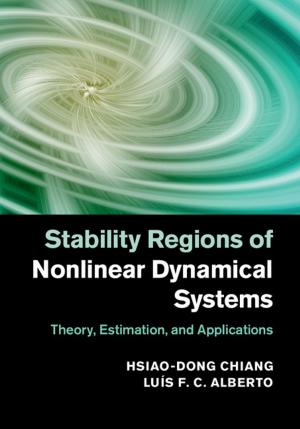Special Responsibilities
Global Problems and American Power
Nonfiction, Social & Cultural Studies, Political Science, International, International Relations, Reference & Language, Law| Author: | Professor Mlada Bukovansky, Professor Ian Clark, Professor Robyn Eckersley, Professor Richard Price, Professor Christian Reus-Smit, Professor Nicholas J. Wheeler | ISBN: | 9781139411653 |
| Publisher: | Cambridge University Press | Publication: | May 17, 2012 |
| Imprint: | Cambridge University Press | Language: | English |
| Author: | Professor Mlada Bukovansky, Professor Ian Clark, Professor Robyn Eckersley, Professor Richard Price, Professor Christian Reus-Smit, Professor Nicholas J. Wheeler |
| ISBN: | 9781139411653 |
| Publisher: | Cambridge University Press |
| Publication: | May 17, 2012 |
| Imprint: | Cambridge University Press |
| Language: | English |
The language of special responsibilities is ubiquitous in world politics, with policymakers and commentators alike speaking and acting as though particular states have, or ought to have, unique obligations in managing global problems. Surprisingly, scholars are yet to provide any in-depth analysis of this fascinating aspect of world politics. This path-breaking study examines the nature of special responsibilities, the complex politics that surround them and how they condition international social power. The argument is illustrated with detailed case-studies of nuclear proliferation, climate change and global finance. All three problems have been addressed by an allocation of special responsibilities, but while this has structured politics in these areas, it has also been the subject of ongoing contestation. With a focus on the United States, this book argues that power must be understood as a social phenomenon and that American power varies significantly across security, economic and environmental domains.
The language of special responsibilities is ubiquitous in world politics, with policymakers and commentators alike speaking and acting as though particular states have, or ought to have, unique obligations in managing global problems. Surprisingly, scholars are yet to provide any in-depth analysis of this fascinating aspect of world politics. This path-breaking study examines the nature of special responsibilities, the complex politics that surround them and how they condition international social power. The argument is illustrated with detailed case-studies of nuclear proliferation, climate change and global finance. All three problems have been addressed by an allocation of special responsibilities, but while this has structured politics in these areas, it has also been the subject of ongoing contestation. With a focus on the United States, this book argues that power must be understood as a social phenomenon and that American power varies significantly across security, economic and environmental domains.















